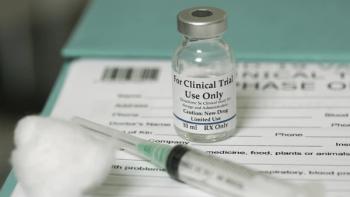
Cataract surgery in both eyes may boost benefits, study shows
Results of a study based from Johns Hopkins School of Medicine suggest that participants who undergo second-eye surgery are likely to function better than those who undergo only unilateral surgery.
New York-Although one-eye cataract surgery improves vision, including the second eye may yield greater rewards, researchers suggest.
Bryan S. Lee, MD, JD, of Johns Hopkins School of Medicine, Baltimore, and colleagues studied 1,739 participants in a prospective, population-based study, as reported January 28 in Ophthalmology online.
Subjects were between 65 and 84 years of age at enrollment, with bilateral baseline best-corrected visual acuity (BCVA) logarithm of the minimum angle of resolution (logMAR) no greater than 0.3 (at least 20/40), or cataract surgery during the study period. Over the course of 2 years, 90 subjects had unilateral cataract surgery and 29 had bilateral surgery.
Compared with the no surgery group, reading speed increased by 12 words per minute in the unilateral group and 31 in the bilateral group. Activities of Daily Vision Scale scores showed a significant positive change of five points of relative improvement in the bilateral group compared with the no surgery group. In contrast, the unilateral group showed a five-point decline.
The results, say the researchers, indicate the overall benefits of cataract surgery, but “also suggest that participants who undergo second-eye surgery are likely to function better than those who undergo only unilateral surgery.”
Follow-up, the investigators say, involves asking whether patients are experiencing continued difficulty with contrast sensitivity, reading, mobility, or other visual needs, even if their VA seems satisfactory.
Newsletter
Want more insights like this? Subscribe to Optometry Times and get clinical pearls and practice tips delivered straight to your inbox.













































.png)


